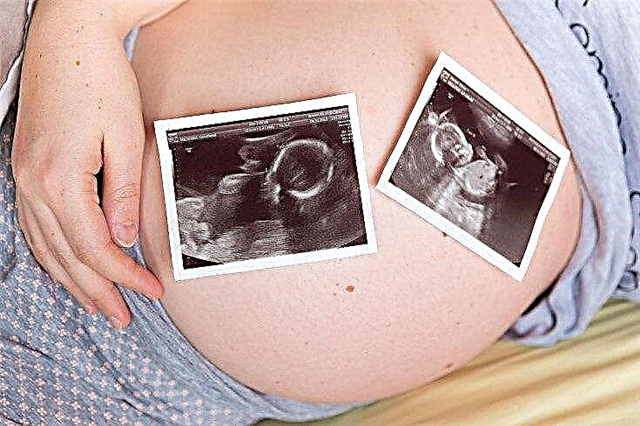Disorders in the work of the baby's gastrointestinal tract often cause sleepless nights for parents. One of the most serious problems they face is constipation. According to statistics, every fifth child at 3 months cannot go to the toilet for a long time. As a result, finding answers to the question of how to provide your baby with comfortable and uninterrupted digestion is of paramount importance.

Many crumbs suffer from problems with bowel movements.
What is constipation
If a child for 2 months cannot go to the toilet for more than a day, then he is constipated. When making such a diagnosis, it is imperative to take into account whether a newborn is breastfed or artificially fed - in each case, the frequency of bowel movements, which are considered the norm, will differ. Much depends on the age of the baby. So, for example, a one-week-old baby should empty his bowels as many times during the day as he has eaten. At the same time, for artificial people, the norm is 2-3 times a day.
Most children under one year old have an unstable bowel movement. It can be easily stated that the child cannot go to great lengths. For what reason this happens and whether it is a physiological feature or a problem, most often only a doctor can figure out.
Signs and symptoms
A baby at four or six months old cannot tell what exactly is bothering him. Therefore, parents have no choice but to focus on external signs:
- prolonged absence or more rare than usual appearance of a chair;
- drier or denser stools, sometimes streaked with blood;
- poor sleep;
- visible bloating of the tummy;
- frequent unreasonable crying;
- anxiety;
- roaring after feeding with the legs pressed against the tummy.
If we are talking about a serious pathology, problems with stool may be accompanied by an increase in body temperature in the baby.
Constipation reasons
An incompletely developed digestive system is by no means always the reason why the baby cannot walk normally.

There can be many reasons for the development of constipation in an infant.
A number of other factors can cause the problem.
Improper nutrition
In a breastfed baby at two months or a little older, constipation is most often associated with an unbalanced mother's diet and her intake of insufficient fluid during the day. Together with breast milk, the same useful (and not so) substances that mother eats, only in smaller quantities, enter the children's body. The following foods in the maternal diet can provoke constipation:
- fatty fish;
- fat meat;
- nuts;
- black coffee;
- strongly brewed tea;
- cheeses with a high fat content;
- whole cow's milk.
In this case, you only need to do one thing: urgently change the diet.
Often, the children's digestive system reacts with constipation to the introduction of complementary foods. Then the products are recommended to be introduced gradually and very carefully - at any moment something can go wrong, and you will have to look for a solution to the problem with constipation.
Selection of artificial mixture
It is not uncommon for a child to have problems with stool due to improperly selected formula for feeding. If the baby is only two or three months old, and there is no way to feed him with natural mother's milk, the mixture should be purchased in composition as close as possible to human milk.
In terms of similarity, artificial mixtures are divided into three main categories:
- highly adapted;
- limited adapted;
- little adapted.
It is highly adapted formulas that most closely resemble breast milk. They are recommended for feeding children under the age of six months, premature babies, babies with an allergic reaction to certain components of conventional formulations.

Artificial kids are more prone to constipation
Important! If a newborn is offered a mixture containing a large amount of fatty acids, the effects can be observed on the same day. The baby's body simply will not be able to digest a composition that is not suitable for it due to age, and a sleepless night for parents will be 100% provided.
Incorrect drinking regime
Some parents believe that if the baby takes all food in liquid form, water should not necessarily be included in his diet. In fact, the child needs water. Among other things, it helps to remove feces. With a lack of water in the body, constipation will be simply inevitable.
Taking medication
It is strongly recommended that you read the instructions carefully before giving any medication prescribed by your doctor to your infant. Iron remedies for anemia can make it difficult to defecate. Sometimes constipation is the result of treatment with antibiotics, sorbents, neuroleptics or non-steroidal anti-inflammatory drugs.
Diseases
Since diseases and pathologies accompanied by constipation do not occur often in infants, pediatricians often remember them last and before prescribing an X-ray or other examination of the intestines, they manage to stuff the child with a large number of useless medications. Most often, constipation in babies occurs with the development of the following diseases: Hirschsprung's disease, intestinal infection, cerebral palsy, birth trauma, disorders in the functioning of the endocrine system.
Other reasons
The development of problems with defecation in some cases is caused by other reasons:
- stressful situations;
- allergy to cow's milk;
- heredity;
- genetic or environmental factors;
- anatomical malformations;
- metabolic disorders and a number of other factors.
Important! Any changes in the infant's daily routine can affect the overall health of the infant and the smooth functioning of the intestines.
What to do with constipation
If the baby cannot go to the toilet for a long time, in no case should he be idle. Recommendations on what parents should do directly depend on the age of the baby.
Up to two months
Medical treatment of constipation in a baby under two months old is highly undesirable. If the problem is not pathological, a tummy massage, a warm bath, or breastfeeding while lying in warm water may help. It is advisable to lay the baby on its side or stomach more often - in this position it will be easier for him to empty himself. If the congestion is too severe, you should immediately see a doctor.

In most cases, massage is good for constipation.
Three to five months
If a child has constipation between three and five months of age, the first aid will be the same as at an earlier age: massage and a warm bath. If these methods do not help, it is allowed to remove toxins from the digestive system with an enema. Any drug treatment should occur exclusively as directed by the pediatrician.
Six months to a year
For older children, whose age is already approaching one year old, it is recommended to switch to vegetable purees for constipation as complementary foods. They have a mild laxative effect. Broccoli, cauliflower, and zucchini are especially helpful in this regard. In no case should you overfeed your child and give him enough water to drink.
It will be equally effective to stimulate the child to crawl. Physical activity often helps to get your bowels up and running quickly.
Despite the fact that many consider constipation not too serious a problem, it should be got rid of immediately. If, within a short time period, it is not possible to normalize the stool at home, it is imperative to show the baby to a specialist for examination, diagnosis and prescription of adequate treatment.



